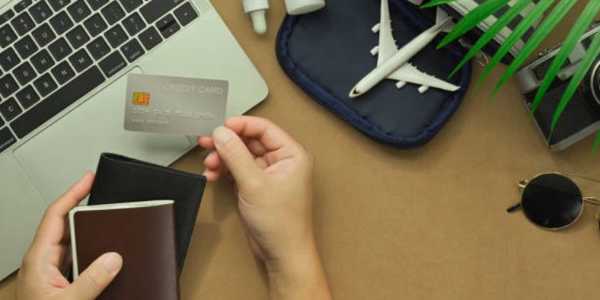The Beginner's Guide To Secured Credit Cards

Anyone planning to build or rebuild credit should know what a secured credit card is. A secured credit card works like a regular credit card, but it requires a cash deposit to be made upfront. This deposit acts as a safety net for the credit card company. If the cardholder does not pay the bill, the deposit covers it.
Why Secured Credit Cards Are A Smart First Step To Building Credit
Secured credit cards help individuals who lack a strong credit history. Many students, immigrants, or individuals who have damaged their credit scores often start with secured cards. It can serve as a stepping stone to acquiring better financial tools later.

Many banks offer secured credit cards. The deposit amount often sets the credit limit. A card with a $300 deposit typically has a $300 spending limit. Some banks may offer a higher limit after reviewing your payment history. Reliable payments may lead to upgrades to unsecured cards.
Bankrate reports that secured credit cards are among the most effective tools for building a good credit score, provided they are used wisely.
How Secured Credit Cards Work
Secured credit cards require a refundable deposit. This deposit is not a fee. It stays in the bank as collateral. It's like giving trust, but with a safety lock in place.
The user can buy things up to the credit limit and must pay the balance each month. Interest applies if the balance is not paid in full. Using the card for small purchases and paying off balances on time helps build credit.
A secured credit card reports spending and payments to credit bureaus, such as Experian . This is how the credit score grows over time.
Late payments damage the credit score. Paying at least the minimum on time keeps the account in good standing. Most experts recommend paying the full balance every month. This avoids interest charges.
Who Should Get A Secured Credit Card
Many people qualify for secured credit cards, even with low or no credit history. A student trying to build credit for the first time can apply. Someone who has had a bad experience with loans or missed payments can use it to improve their credit score.
Individuals with low credit scores often struggle to qualify for traditional credit cards that offer rewards. A secured credit card is easier to get because the bank holds the deposit. The risk for the bank is lower.
Immigrants new to the country also use secured credit cards to build a credit footprint. A good credit history is needed for car loans, mortgages, and even renting an apartment.
How To Pick A Good Secured Credit Card
Not every secured card is the same. Some banks charge high fees, while others charge fair fees. Look for cards with low or no annual fees. Also, verify that the card is reported to all three major credit bureaus.
Some cards offer rewards, such as cash back or travel points. This is rare but possible. Make sure the reward does not come with high hidden fees.

Check if the bank will review the account for an upgrade. Some banks check after six months to a year. If the payment record is good, they may offer an unsecured card and return the deposit.
Look for banks with strong customer service. NerdWallet is an excellent resource for comparing credit cards.
Tips To Use Secured Credit Cards Wisely
Using a secured credit card the right way matters. Never max out the limit. Maintaining a balance below 30% of the credit limit demonstrates good financial habits. This is called credit utilisation. Lower is better.
Always pay on time. Set up reminders or auto-pay. Missing payments can erase the progress made. Payment history is the most significant component of a credit score.
Use the card every month, but keep spending small amounts. One or two small purchases, such as gas or groceries, are enough. Pay off the total before the due date. This demonstrates to lenders that the cardholder is financially responsible.
Avoid taking out cash advances. Cash advances often come with high fees and interest rates. They also do not help the credit score.
How Secured Credit Cards Affect Credit Scores
A secured credit card helps build a positive payment history when used correctly. Good habits, such as paying on time and maintaining low balances, can boost your score. Over time, a credit score can improve enough to get better cards, loans, and lower interest rates.
Credit utilisation should stay low. Exceeding the limit can lead lenders to believe that the cardholder relies too heavily on credit. This can lower the score.
Closing a secured card too soon can harm your credit score. Keeping it open and active helps lengthen the credit history, which is another factor that contributes to a good credit score.
When To Upgrade To An Unsecured Card
After about six to twelve months of reasonable payments, many banks offer to switch the secured card to an unsecured one. This means no deposit is needed anymore.
Before closing a secured card, ensure that you have another line of credit available. This keeps the credit history alive. Once upgraded, the bank returns the deposit.
Sometimes it is smart to keep the secured card open, even after getting an unsecured one. This helps maintain a more extended credit history and holds the credit score steady.

What To Watch Out For
Always read the fine print. Some banks charge application fees, monthly maintenance fees, or high annual fees. These can eat into the deposit or benefits. Look for banks that disclose all charges.
Never think that having a secured card alone will build good credit. The way it is used matters more. Responsible use is the key to growing trust with banks and lenders.
Watch out for scams. Only use secured credit cards from trusted banks or credit unions. If something sounds too good to be true, it probably is.
A secured credit card is not just a piece of plastic. It is a tool to learn how credit works. Used with discipline, it opens doors to bigger financial opportunities.










